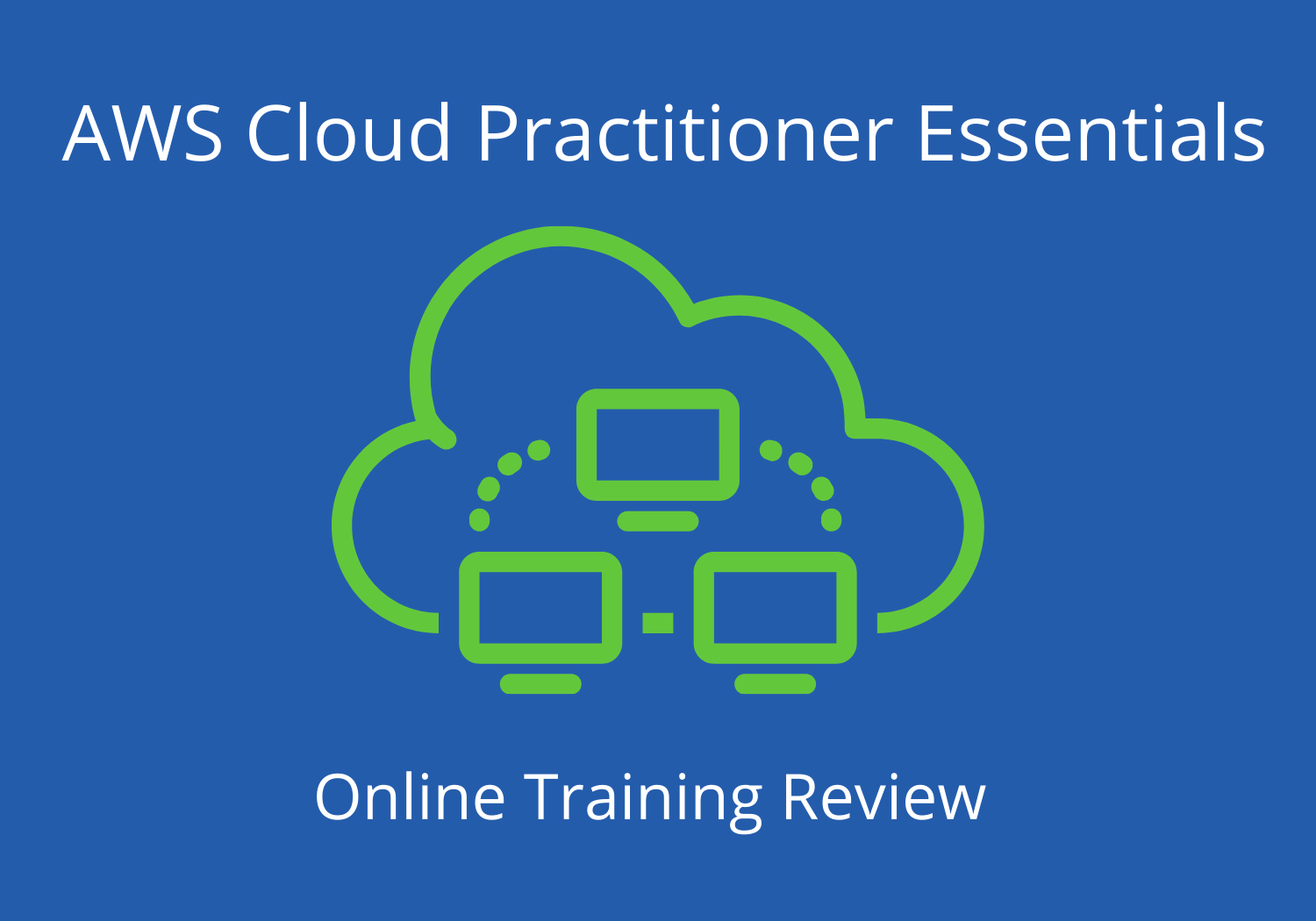Online Training Review
I wanted to know more about cloud computing. If I’m in the position to develop analytics running in the cloud, I’d like to have a good understanding of its architecture and capabilities. Therefore, I took the Amazon Web Services (AWS) Cloud Practitioner Essentials course. I have general knowledge of cloud computing from working in the field, but I have no formal training or work experience (yet). In this article, I will discuss my general thoughts about the course and point out topics that I found particularly interesting.The Training
AWS Cloud Practitioner Essentials is an online Fundamental (as opposed to Intermediate or Expert) training that provides an overview of AWS services. Topics range from load balancing and object-level storage to user permissions and pricing. The 11-module course concludes with information about the AWS Certified Cloud Practitioner exam, a final assessment, a survey, and a certificate of completion. The course is stated to take 6 hours, but I spent 8 hours on this training because I paused to take notes and revisited some topics. Lastly, the course is FREE!
Course Navigation Pane
The course is well-organized and user-friendly. The navigation pane updates your progress as you move through the training. The lessons employ a variety of engaging methods to help you learn: brief videos, short text explanations, and visualizations (often interactive). Text includes links to product pages and blogs to give more information and context. I used these a few times to gain a better understanding of certain topics.EC2 Interactive Visual
Quizzes
The short quizzes at the end of each module check your knowledge. Whether you get the answer correct or not, there is always an explanation of the answer and why the other answers are incorrect. Before each quiz, there is a summary video and links of topics covered in the module; these are the only things I skipped in the course. These summaries may be helpful though, if you’re using the course as a reference.
Cloud Computing Quiz Question and Explanation
Coffee Shop
The coffee shop metaphor is effectively used throughout the training. For example, directing traffic with elastic load balancing is discussed by first showing the example of a coffee shop with three cashiers and a lot of customers coming into the shop. Without a host, customers may not line up efficiently, leaving cashiers idle despite an overflow of customers. A host, like a load balancer, can direct the flow of customers to ensure an even distribution of work for each cashier.Coffee Shop without a Host / Load Balancer
AWS Pricing
I’ve never had to really think about pricing as part of my job, so I appreciate AWS focusing on this aspect throughout the entire training. Tools are presented with explanations of why they are efficient to use and how that tool will affect setup costs. For example, when discussing AWS Lambda, a serverless computing option, code will be running only when you need it and you only pay for that time (as opposed to provisioning Amazon Elastic Cloud Compute – EC2 – instances).AWS Lambda, Serverless Computing
AWS-Focused
The course is heavily focused on AWS-specific products and services (obviously). The general cloud computing topics (e.g., networking, global infrastructures, storage) are taught in conjunction with the associated AWS solutions. For example, a concept like designing an efficient, reliable, and secure framework is presented along with AWS Well-Architected Framework. The quizzes and final assessment focus more heavily on the names of specific AWS products rather than general capabilities and concepts.Amazon SQS Final Assessment Question
I would have liked to have seen more of a balance between AWS-specific and general cloud computing terminology and information. Since I am not yet well-versed on cloud computing, I am unsure how much of this knowledge is generically applicable. I did appreciate the quick lesson covering the advantages of cloud computing.Advantages of Cloud Computing
Topics of Particular Interest
AWS CloudFormation
A few topics especially piqued my interest. At the top of this list is the ability to write code and not rely solely on GUIs (graphical user interfaces). AWS CloudFormation allows you to build an environment by writing lines of code (i.e., JSON) instead of using the AWS Management Console.AWS CloudTrail
AWS CloudTrail tracks user activity and API calls. Having these detailed logs would be especially critical for an organization dealing with sensitive information (e.g., classified data, medical records, and personally identifiable information). There is even a trigger system called CloudTrail Insights that can be used to identify unusual behavior.AWS CloudTrail Quiz Question
AWS Trusted Advisor
The industrial engineer part of me (Georgia Tech, go Jackets!) is especially impressed by the AWS Trusted Advisor. This tool helps AWS customers save money, improve performance, ensure secure practices, reduce outages, and monitor usage. The dashboard shows indicators for each category. It’s like having a whole quality control department at your fingertips!AWS Trusted Advisor Dashboard
AWS Snow Family
How do you migrate your data, potentially on the scale of an exabyte, to the cloud? (Disclosure: I had to google “exabyte” and it is equal to one quintillion – 1,000,000,000,000,000,000 – bytes.) The AWS Snow Family contains adorably named secure devices used to physically transfer data into or out of the cloud. The largest, the Snowmobile, requires a semi-truck and can transfer up to 100 petabytes.AWS Snow Family










